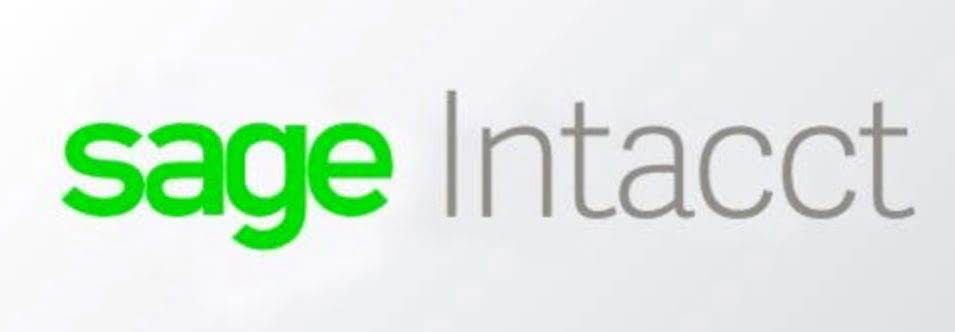
Retirees are typically invested more moderately, or even somewhat conservatively. The power of tax deferral doesn’t benefit them quite as much because their investment returns are a bit lower. In this situation, it may make sense to spread investment fees over all accounts proportionately. Similarly, financial advisor fees may also qualify under specific circumstances if they are tied to managing tax-exempt income. After conducting your analysis, consider having a candid conversation with your financial advisor about your concerns. You can also explore alternative investment options or advisors that offer lower fees with similar or better performance metrics.
- If you choose to use the constant yield method to figure accrued acquisition discount, treat the cost of acquiring the obligation as the issue price.
- Investors should consult financial advisors or tax professionals periodically to receive updates on regulatory changes that could impact their financial strategies.
- If you receive both a Form 1099-DIV and a Form W-2 showing these dividends, do not include the dividends in your wages reported on Form 1040 or 1040-SR, line 1.
- The conversion transaction rules do not affect whether the built-in loss is treated as an ordinary or capital loss.
- Keep this information until the period of limitations expires for the year in which you dispose of the stock in a taxable disposition.
- To choose to be taxed as a corporation, the club cannot be a trust (see Club as a Trust, later) or otherwise subject to special treatment under the tax law.
Documenting Travel Expenses
- This is done on the Qualified Dividends and Capital Gain Tax Worksheet or the Schedule D Tax Worksheet.
- Report sales from those securities or commodities on Form 8949 and Schedule D (Form 1040), as appropriate, not Form 4797.
- Terminations or transfers may result from any offsetting, delivery, exercise, assignment, or lapse of your obligation or rights under section 1256 contracts.
- A life insurance company may change from a mutual company to a stock company.
- Understanding these fees is crucial for investors, as they can affect overall investment returns and can potentially be deductible under certain conditions.
- Report each amount on the appropriate lines and schedules of your income tax return.
- Make the election on Form 8949 and Schedule D (Form 1040) by treating the sale or exchange as the sale or exchange of a capital asset, according to Form 8949 and Schedule D (Form 1040) and their separate instructions.
Shares in a mutual fund or real estate investment trust (REIT). Adjustments to the basis of stocks and bonds are net sales explained in the following discussion. Digital assets are any digital representations of value that are recorded on a cryptographically secured distributed ledger or any similar technology.
Deductible Expenses On Form 1041: A Comprehensive Guide
![]()
The issue for these trusts is that the TCJA cut out miscellaneous itemized deductions for everyone, but trusts have no standard deduction to fall back on like individual taxpayers do. Lower deductions equal higher taxable income, and the tax brackets and rates applicable to trusts (while slightly trimmed under the TCJA) are not on the whole largely different than the pre-TCJA tax brackets and rates were. The IRS recently finalized regulations providing guidance on which expenses a trust can still deduct, and importantly, for those that advise trustees or beneficiaries, when those advisory fees are still deductible. Investors who own an IRA can choose to pay financial planning or investment management fees directly out of the account being managed. Since the fees are considered investment expenses, they are paid on a pre-tax basis. This means investors can avoid paying income tax, something they can’t do if they pay the fees from their taxable income.
Irrevocable Trusts and Tax Deductibility

For an exception, see Unpaid expenses owed to related party, later in this chapter. If you deposit debt proceeds in an account, that deposit is treated as investment property, regardless of whether the account bears interest. But, if you withdraw the funds and use them for another purpose, you must reallocate the debt to determine the amount considered to be for investment purposes. The amount of losses and tax credits you can claim from passive activities is limited. Generally, you are allowed to deduct passive activity losses only up to the amount of your passive activity income.
- Under the Tax Cuts and Jobs Act of 2017, many itemized deductions are now subject to a 2% floor, which means you can only deduct expenses exceeding 2% of your adjusted gross income (AGI).
- Generally, if you trade business or investment real property for other business or investment real property of a like kind, no gain or loss is recognized.
- Qualified expenses include any contribution you make to a qualified tuition program or to a Coverdell education savings account.
- One such avenue involves seeking out opportunities to help clients reduce the amount of tax they pay on their investment income.
- Therefore, maximizing your contributions to these tax-advantaged accounts can be a beneficial strategy for minimizing the impact of investment fees.

But if you receive the proceeds in installments, you usually must report part of each installment payment as interest income. If the proceeds are more than the expenses, you may be able to exclude only part of the interest. This income-reporting rule also applies when the bonds are reissued in the name of your former co-owner and a new co-owner. But the new co-owner will report only his or her share of the interest earned after the transfer. Treasury bills, notes, and bonds, and obligations issued by any agency or instrumentality of the United States is taxable for federal income tax purposes.
How can trustees optimize investment fee structures for trusts?
While investment fees may not be fully tax-deductible under the current laws, there are still plenty of ways to help minimize their impact on your returns. By leveraging tax-advantaged accounts, tax-loss harvesting, held-to-maturity investments, and other tax-smart strategies you can potentially reduce the impact of investment fees on your portfolio. By effectively applying tax loss harvesting, you can work to lower your tax liability and indirectly minimize the potential impact of investment fees. This strategy, when combined with other tax-smart strategies such as investing in tax-advantaged accounts Bookkeeping vs. Accounting and leveraging tax credits, can help you manage your investment costs and maximize your net returns. These losses, which may seem unfavorable in the short term, can offset capital gains taxes in Texas from other investments, potentially reducing your overall tax bill. In the U.S., if your losses exceed your gains, you can use the excess loss to offset up to $3,000 of other income.
![]()
However, future legislation could extend or modify this provision. Stay informed about tax law changes to understand their potential impact. Investing management fees within tax-advantaged accounts like 401(k)s, IRAs, and 529 plans offers significant tax benefits. While you can’t deduct the management fees within these accounts in the current tax environment, the growth and potentially the withdrawals (depending on the account type) are tax-advantaged. PillarWM Finder is an independent and unaffiliated entity that operates separately from any financial advisory firm, brokerage, investment company, or regulatory agency. Please note that the website does not intend to promote or endorse the listed financial advisors or their advisory services.


لا تعليق